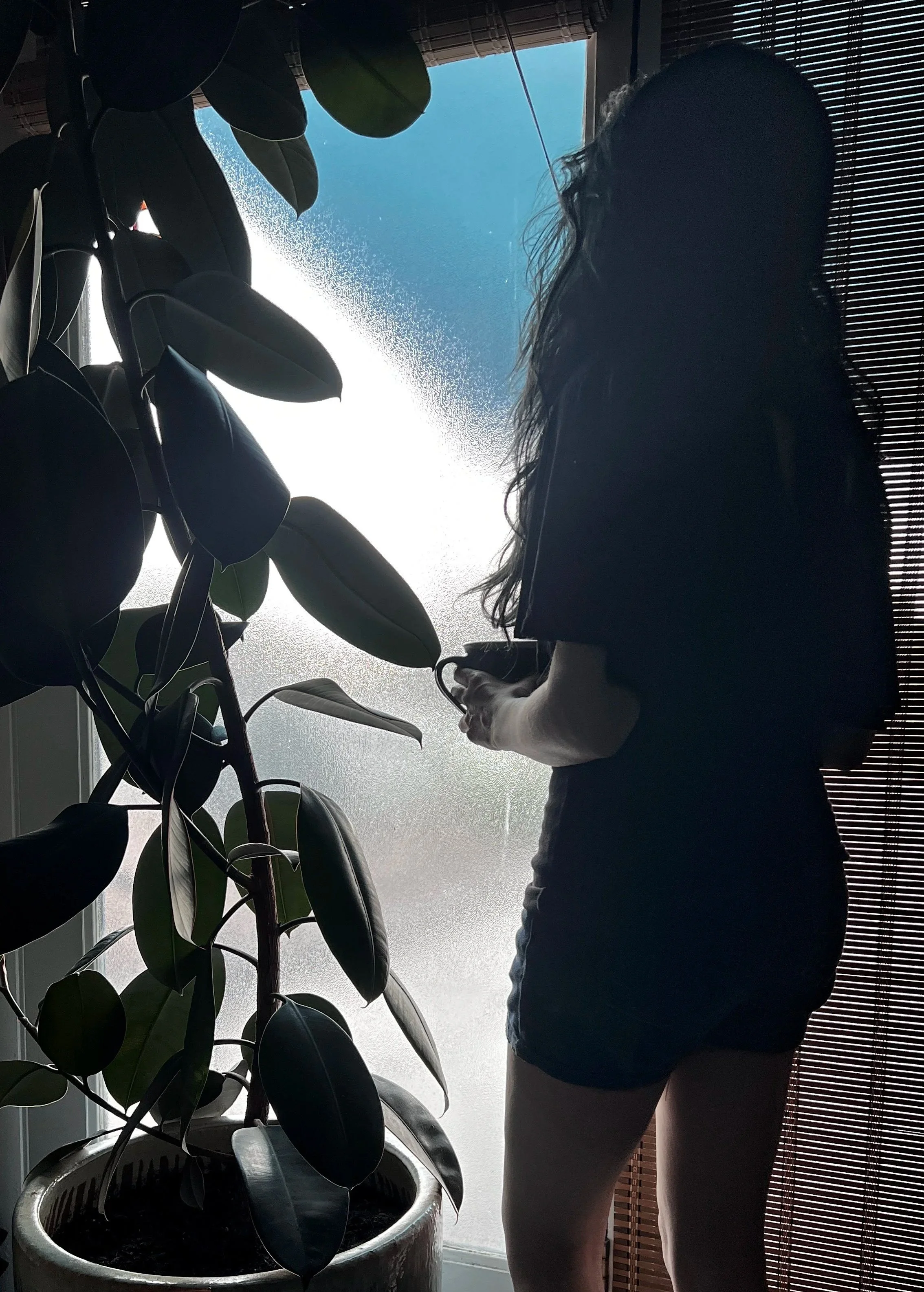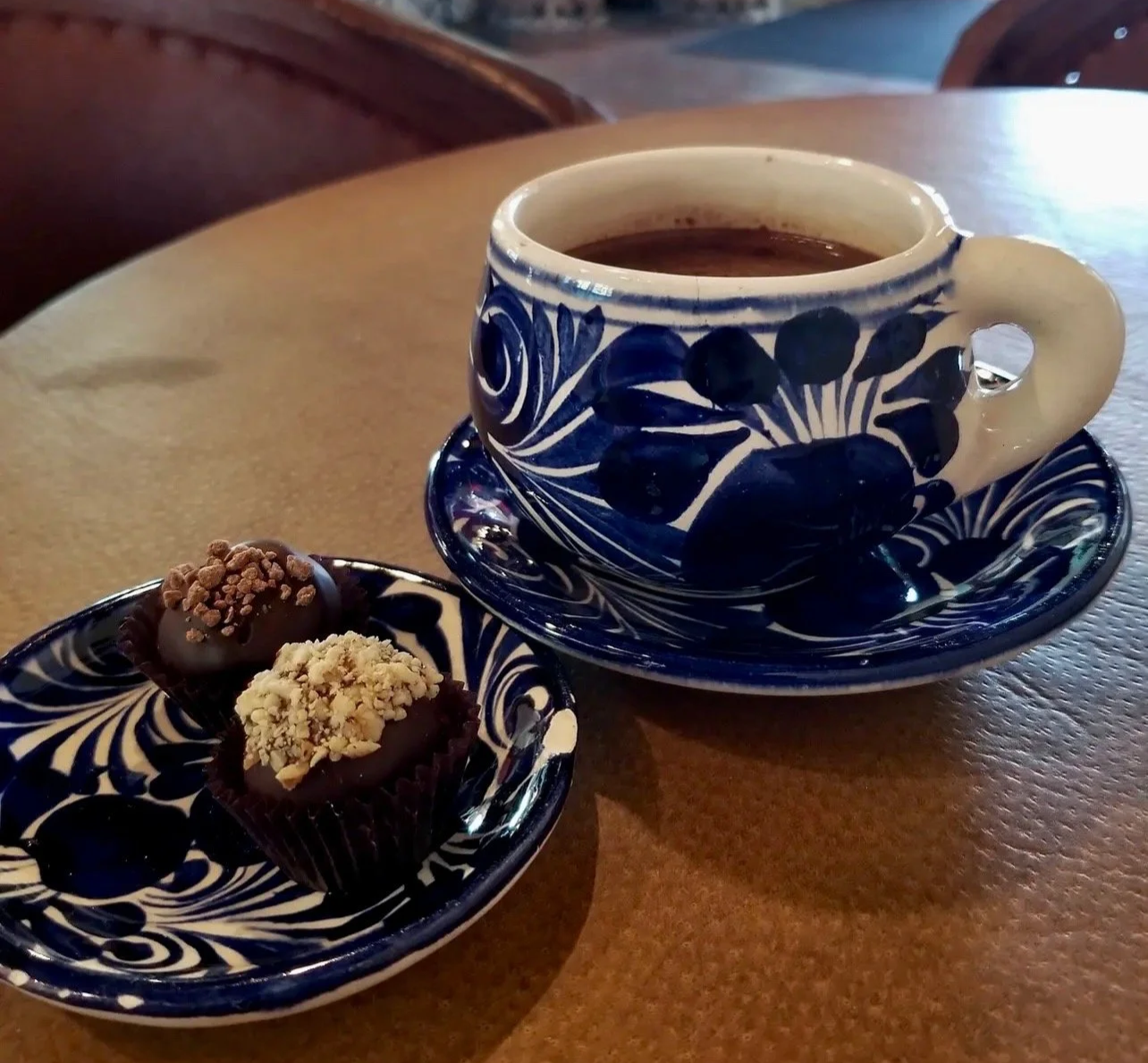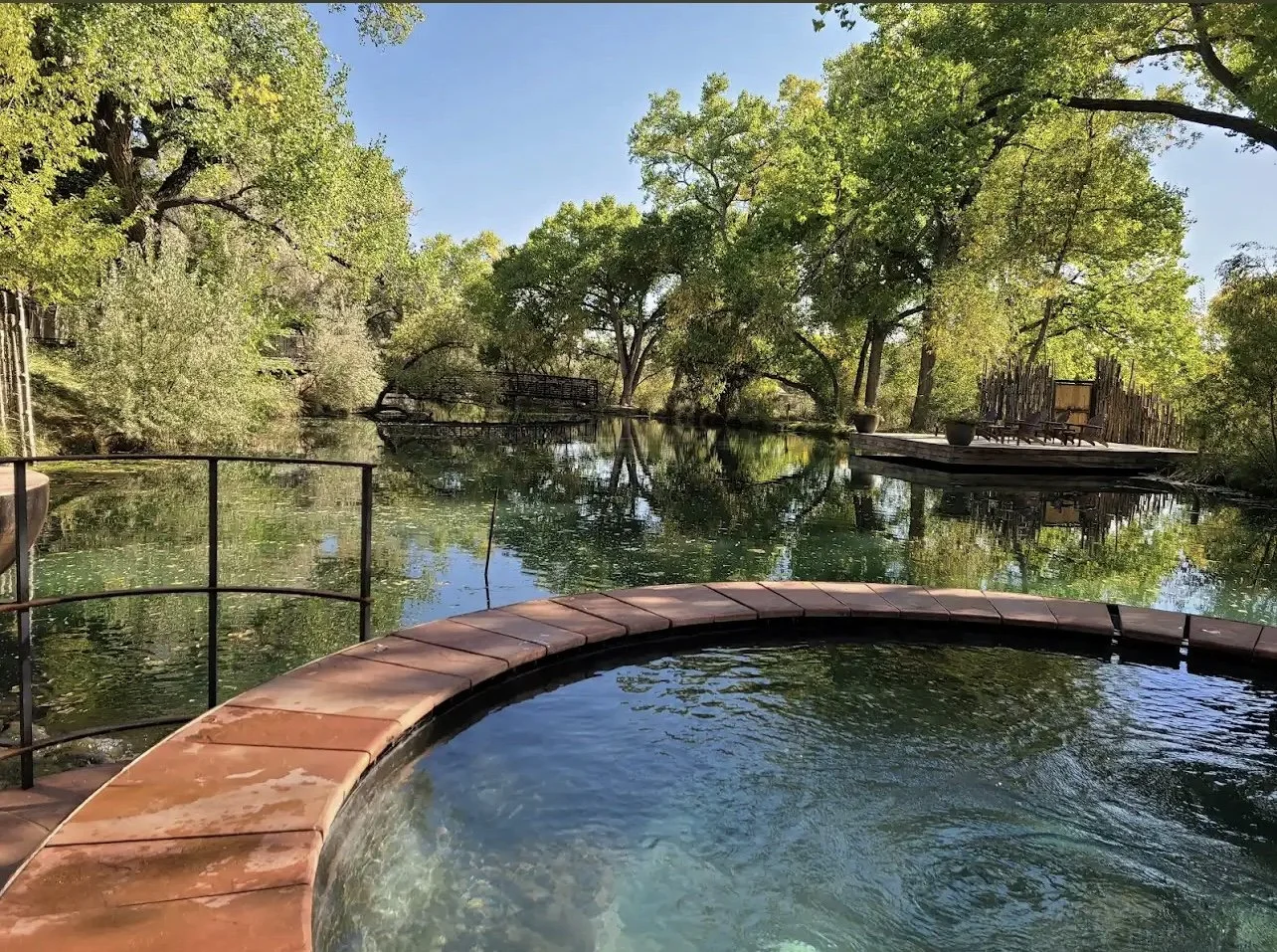Outgrowing Your Old Life? Here’s What That Feels Like
The sun sets, the sky shifts — every ending holds the shape of something new.
TL;DR – The Heart of It:
Outgrowing your old life feels unsettling because it carries both grief and possibility—your nervous system clings to the familiar even when it no longer fits.
The hardest part is the in-between: you’re no longer who you were, but not yet who you’re becoming, and that liminal space can feel like unraveling.
What looks like bravery from the outside often feels like survival on the inside—but even survival is a form of courage.
Why Does Outgrowing a Life Feel So Unsettling?
There comes a moment when the life you’ve built—your routines, your relationships, even your sense of self—starts to feel off. Like shoes that once fit perfectly but now pinch at the edges. Nothing is wrong exactly, but nothing feels right either. That’s the quiet beginning of outgrowing your old life.
And it’s rarely a graceful process. Growth isn’t a mountaintop revelation—it’s disorienting, lonely, and layered with grief. Your nervous system doesn’t just register change as possibility; it also reads it as loss. Even if the old life wasn’t ideal, it was familiar. It gave you reference points, rhythms, and maybe even a sense of safety—until it didn’t.
Outgrowing your life can feel like standing at the edge of yourself: part of you pulled forward, part resisting, unsure which way is home. From the outside, people might call it brave. But inside, it feels messy. Confusing. Like shedding a skin without yet knowing what you’ll look like underneath.
This post is for that in-between space. Not a neat “five steps to transformation” guide, but an honest look at what it feels like to outgrow a life: the grief, the nervous system shifts, the gap between how others see your changes and how they actually land in your body.
What Does It Really Mean to Outgrow Your Old Life?
Outgrowing your life isn’t about milestones or checking boxes. You can land the new job, find the partner, or hit “success” and still feel like you’re suffocating in a version of life that no longer matches who you’ve become.
At its core, outgrowing is an internal mismatch. The external structures—your routines, environment, even relationships—were built around an earlier version of you. Maybe they worked for years. Maybe they even saved you once. But then something shifts. The job that once energized you now leaves your chest tight, or conversations with old friends feel strangely flat. You catch yourself asking: Is this all there is?
Humans are wired to favor the familiar—even when it’s uncomfortable—because the nervous system equates familiarity with safety. That’s why leaving behind an old life can feel as destabilizing as losing something you loved.
On a deeper level, many describe this process as a shedding. The life you built may have been true for who you were, but not for who you’re becoming. That doesn’t make the old life wrong. It just means you’ve outgrown the container it gave you.
What Are the Early Signs You’re Outgrowing Your Old Life?
Outgrowing a life rarely happens overnight. It creeps in quietly—so subtle you might dismiss it as stress or a “bad week.” But your body often registers the shift before your mind admits it.
Some of the earliest signs include:
Routines that once worked now feel unbearable.
Relationships feel out of sync. Conversations skim the surface, leaving you restless.
Your body carries the weight. Fatigue, tension, or restlessness you can’t explain.
A gut-level knowing. Even if life looks fine on paper, something inside whispers: This isn’t it anymore.
These signals are easy to ignore. We’re conditioned to push through discomfort, to name it burnout. But listening to them is the first step toward honoring that you’ve outgrown what no longer fits.
Why Does It Feel Like Grief to Leave Behind an Old Version of Yourself?
When you think of grief, you might picture funerals or breakups. But there’s another kind: the grief of growth. Outgrowing your old life means saying goodbye to identities, routines, and even dreams that once defined you. And letting those go can feel like mourning a person who no longer exists—because in a way, you are.
You might grieve the career you thought you’d follow, the friendships that once felt like home, or the version of yourself who believed certain things about love, safety, or stability. Even if you want the change, the brain clings to the familiar, because familiar equals safe.
This is also why you may feel conflicting emotions at once: excitement for the new mixed with grief for what you’re leaving behind. And then there’s the grief that’s harder to name—the grief for the roles you played to survive. Maybe you were the reliable one, the overachiever, the caretaker. Shedding those roles doesn’t just feel like freedom; it can feel like betrayal.
Growth is rarely glamorous. It’s messy, emotional, and often marked by a deep ache for what was—even when what was wasn’t working anymore. But grief isn’t a sign you’re going backward. It’s evidence that you’re in transition, honoring the past self while slowly making space for the new one.
From the outside it looks like a leap. Inside, it feels like shadows, silence, and becoming.
How Do Others See Your Leap—And Why Doesn’t It Match How It Feels Inside?
When you step out of an old life—move cities, leave a relationship, close a chapter—people often respond with admiration. “You’re so brave.” “I wish I had the courage to do that.”
But the lived reality rarely feels that polished. Inside, it often feels less like bravery and more like survival. You leave because staying would slowly undo you. You start over because the alternative is shrinking.
From the outside, bravery and survival look identical. But inside, bravery might feel expansive, while survival feels like clawing your way out just to breathe. What others celebrate as inspiring often comes with sleepless nights, financial fear, and nervous system strain no one sees.
This mismatch creates a strange loneliness. You’re told you’re courageous, but inside you may feel fragile or barely holding it together. Both are true—you can be inspiring and exhausted. Even survival takes courage.
What About the Grief for What You Never Had?
There’s another kind of grief that rarely gets acknowledged: grieving what you never had.
Maybe you never had a family who felt like a soft place to land. Maybe you never had a steady partner or a financial safety net. When you start over, you feel the weight of that absence—not because you’re ungrateful, but because the scaffolding most people lean on simply isn’t there.
Psychologists call this disenfranchised grief—grief that isn’t widely recognized. Because you can’t point to a funeral or a breakup, people don’t see it as grief. But your nervous system knows. Carrying that invisible weight can make starting over feel lonelier and more complicated.
Acknowledging this grief matters. It validates your experience: change is heavier without support. It reframes resilience: rebuilding alone isn’t just strength, it’s survival artistry. And it creates space for compassion—for yourself, and for others carrying invisible grief of their own.
Why Is the In-Between So Hard?
The hardest part of outgrowing your old life isn’t the leaving—it’s the middle. That in-between space where you’re no longer who you were, but not yet who you’re becoming.
Psychologists call this a liminal space—a threshold state. It’s the cocoon stage between caterpillar and butterfly. Inside, everything dissolves. Your old identity no longer works, but the new one hasn’t fully formed.
The in-between often brings identity confusion (“I don’t even know who I am right now”), nervous system swings between anxiety and fatigue, and a loss of reference points. From the outside, it may look like “transition.” From the inside, it feels like unraveling.
Here’s the reframe: the in-between is not wasted time. It’s where the deeper work happens—where your body and spirit reorganize to hold more of who you are. Yes, it feels like fog. But fog is part of transformation.
Healing often starts with the body — small rituals of comfort, grounding, and presence.
What Does Outgrowing Your Life Feel Like in the Body?
Outgrowing your old life isn’t just mental—it’s physical. Before your mind can name it, your nervous system often speaks through the body.
It can feel like exhaustion you can’t explain, even with enough sleep. Or hyper-sensitivity—crowds and conversations suddenly overwhelm you. Or restlessness, a fidgeting urge to move, as if your body is trying to escape before your mind catches up.
The best way to describe it is like wearing clothes that no longer fit. At first, you tug at the seams, trying to adjust. Eventually, you realize the discomfort isn’t going away—the outfit itself is too small.
Uncertainty registers as a potential threat, so the nervous system ramps up—leaving you tense, tired, or on edge. But these signals aren’t failures. They’re messengers pointing you toward what no longer fits.
How Do You Tell the Difference Between Avoidance and Growth?
On the surface, avoidance and growth can look the same: moving across the country, ending a relationship, quitting a job. The difference lies in what drives the change.
Growth feels uncomfortable but expansive. Fear is present, but so is possibility.
Avoidance feels like temporary relief. The change may feel good at first, but old patterns resurface.
Growth disrupts old identities. You may feel lost for a while, but sense you’re becoming someone new.
Avoidance lets you stay the same. The scenery changes, but you don’t.
Reflection questions can help: Am I moving toward something, or just away? Does this feel like contraction, or opening? Is this aligned with who I’m becoming—or just an escape?
Avoidance isn’t failure. Sometimes survival requires it. But if what you’re longing for is transformation, noticing the difference can keep you honest with yourself.
What Helps You Stay Steady When Everything Feels Shaky?
When you’ve outgrown your old life, the ground can feel unstable. Old structures no longer work, and new ones haven’t formed yet. So how do you hold steady?
The answer isn’t forcing clarity. It’s building small anchors—practices that remind your body it’s safe to be here, even when your mind is restless.
Grounding rituals. Light a candle at night, touch the earth with bare feet, or breathe deeply each morning.
Body-based practices. Stretching, walking, yoga, or bodywork remind your system it doesn’t have to carry everything alone.
Gentle routines. Meals at regular times, screen-free evenings, or short morning rituals create anchors when life feels unmoored.
Permission to slow down. Moving at the pace your nervous system can handle is often more powerful than constant action.
These anchors don’t erase uncertainty. But they give your body and spirit a place to land.
Every beginning is both terrifying and sacred — still water before the first step ripples outward.
Why Is Starting Over Both Terrifying and Sacred?
Starting over carries a paradox. On one hand, it feels terrifying—the uncertainty, the grief, the ache of not knowing what’s next. On the other, it holds a quiet sacredness—the sense that you’re standing at a threshold, even if you can’t see the doorway yet.
We often imagine growth as linear: one chapter ends, another begins. But in reality, starting over is cyclical and layered, more like seasons than a staircase. You may move forward, circle back, grieve, shed, then move forward again. Each loop reshapes you.
What makes starting over so intense is that grief and possibility live side by side. Fear always accompanies the threshold—the body resists the unknown. But fear doesn’t mean you’re off track. It means you’re alive to transition.
The sacredness hides in the unraveling itself. The fact that you’re questioning, shedding, stepping into uncertainty—that’s proof of life. Proof you’re listening. Proof you’re becoming.
Closing: What If Outgrowing Isn’t the End, But the Beginning?
When you’re in the thick of it, outgrowing your old life can feel like everything is falling apart. The grief is real—for what you’ve lost, for who you used to be, and even for what you never had. The gap between how others see you (“so brave!”) and how it feels inside (“I’m just trying to survive”) can be disorienting.
But what feels like unraveling is also an arrival. The body’s restlessness, the nervous system’s strain, the ache of change—they’re not evidence you’ve failed. They’re proof you’re in motion. Proof you’re listening. Proof you’re becoming.
Outgrowing isn’t the end of your story—it’s a threshold. And thresholds, by nature, are uncomfortable. They’re also sacred. They mark the moment you stop trying to fit into an old container and begin making space for the life that can hold you now.
If you’re standing in the fog between what was and what’s next, trust the timing of your becoming. It doesn’t have to be fast. It doesn’t have to be neat. The fact that you’ve outgrown what no longer fits means the next version of you is already on its way.
And that is not an ending. It’s a beginning.
✨ Ready for your own new beginning?
Veluna Wellness™ will be opening later this fall in Santa Fe, New Mexico. My work isn’t just massage—it’s a sacred, intentional space for nervous system healing and deep renewal. If you’re feeling the pull to outgrow what no longer fits and step into something new, I’d love to hold space for that transformation with you.
Join the Veluna Wellness waitlist today and be the first to know when sessions open in Santa Fe. Your next chapter deserves a body and spirit that feel supported.




